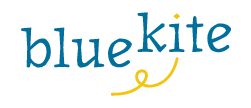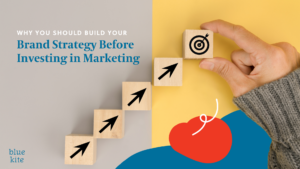In case you haven’t heard, Nashville has suffered catastrophic damage from massive flooding due to record-breaking rainfall over the weekend. Hundreds, if not thousands, have suffered incredible damage to their homes and have lost everything they own.
It has been a tragic event. And yet, Nashville is a resilient city full of hope, optimism and promise. The acts of heroism and kindness have been astounding, proving the Volunteer State has lived up to its namesake. I could go on, but there are a number of bloggers who have done an excellent job capturing this without me weighing in further.
However, I do want to share my observations about how Nashville has communicated about this crisis, and why I think social media should be a vital component of crisis communication planning.
On Sunday, my house was without power for at least 12 hours. During that time, we were under a number of severe weather advisories. The only way I was able to receive information about the situation was through social media channels on my phone. Thanks to the local media and my friends throughout Nashville, I was able to stay abreast of the situation through Twitter and Facebook.
In the days following the storm, my social media circle has continued to keep me informed about road closures, the need to conserve water and how to volunteer with relief efforts. It has been amazing to see the exchange of important, timely information take place in this manner. The use of the #nashvilleflood hashtag on Twitter has made it easier to stay on top of pertinent information.
While the city of Nashville has done an excellent job handling this crisis and communicating information to the media, I have been disappointed with the lack of official communication via online outlets. As the Nashville Scene pointed out today, Nashville’s own city Web site has outdated information. Additionally, none of the city’s agencies are using social media to communicate.
I do not say this as a knock to Nashville. Instead, I offer this as an example to encourage government agencies and businesses to include social media efforts in their crisis plans.
Here are a few reasons why I think social media is an essential component to crisis communications:
- It allows you to communicate quickly. Although social media does not replace broadcasting through traditional media channels, it does offer another way to distribute important information quickly. Social media is easy to use and can be updated while on the go. Organizations can use Twitter and Facebook to quickly provide links to your Web site and other hubs of information that would be useful to citizens during a crisis.
- It’s a tool for answering questions. In a crisis situation, phone lines may be down or tied up due to a large volume of calls. Social media provides another avenue for people to get questions answered. In your crisis plan, designate someone to be responsive and field questions that come your way. Responsiveness will help prevent the spread of rumors, or allow you to respond to rumors that develop.
- It’s mobile. Remember that people may be without power or away from their homes when important information is needed. Send the information to where the people are — on their phones. Because people can’t get live streaming TV coverage on their phones, relying on broadcast media to convey information won’t do the trick. Send links to YouTube videos, Flikr, Web sites or maps that convey necessary information.
If you do not yet use social media, it’s important to put the necessary tools in place before you’ll need them in a crisis situation.
How does your organization use social media in a crisis? Are there other benefits I’ve missed?
Image credit: kelseywynns



2 replies on “Why Social Media is Crucial to Crisis Communications”
Great post! I am working on a similar post myself as I have been amazed at the true connection power of social media in times of crisis. The Facebook Page “I Survived the Great Nashville Monsoon of May 1st” was formed last Saturday during the initial wave of the storms and steadily grew to over 38,000 people. This gathering place allowed residents and those concerned to gather and share news, stories and images from the event. This crisis created a community online that many ended up relying on for important information. At its best, Social Media can both link people together and activate them to take action.
Here is a link to the Facebook Page: http://bit.ly/9yW6Tw
Great points, Kacy! I didn’t realize there was a Facebook page that had received so much momentum. That’s a great example of how people are rallying together to share information.